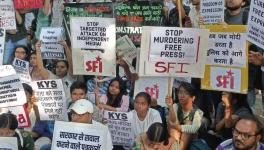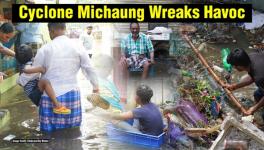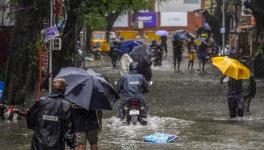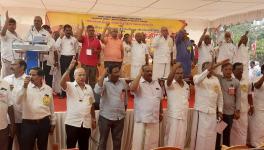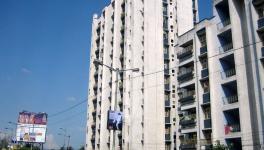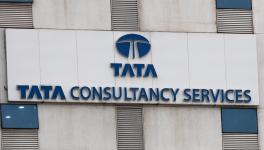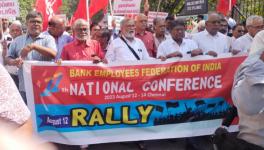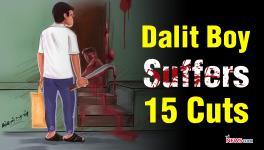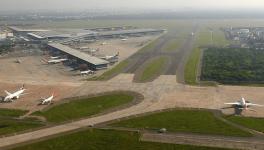Under IMA Pressure, Centre Amends Epidemic Act to Protect Health Professionals from Physical Attacks
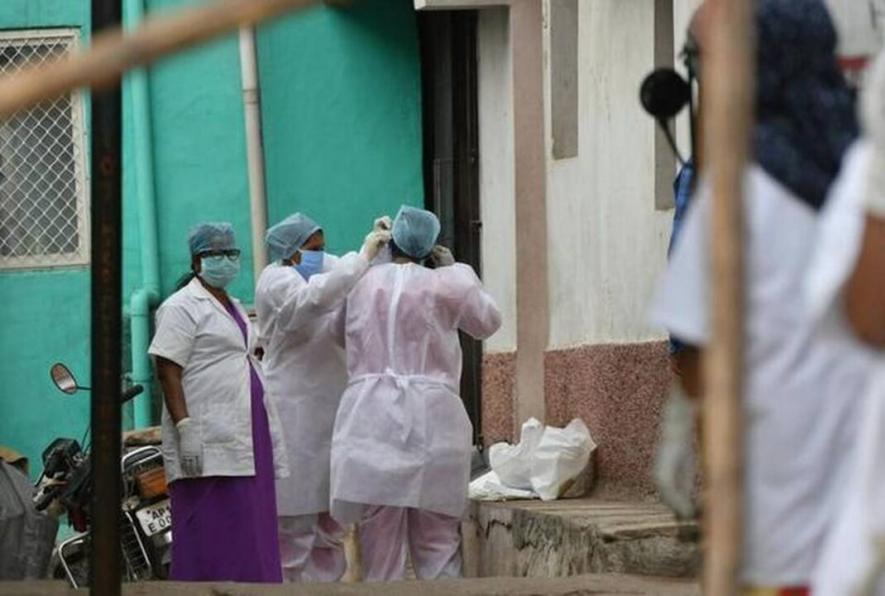
Credit: Nagara Gopal
Conceding to the Indian Medical Association's (IMA) demand for a central law to protect doctors and healthcare workers from increasing physical attacks and harassment, the Centre passed an ordinance on April 22, amending the Epidemic Diseases Act, 1897, to apply harsher punishments against those found guilty.
Following the new amendment, attacks against doctors during an epidemic will be regarded as a non-bailable offense, punishable by between three months to five years of imprisonment, in addition to a fine ranging between Rs 50,000 and Rs 2 lakh. In case a medical professional suffers a “grevious” injury, the jail term could go up to seven years and the fine could rise to Rs 5 lakh.
Working at the front-lines of the effort to contain the COVID-19 pandemic, doctors and other healthcare professionals have soldiered on despite a severe shortage of protective gear, and remain at a high risk of exposure to the virus.
“No nation sends its army to war without weapons,” the IMA complained in a statement. “Doctors, nurses and health care workers of this country have been sent to fight against COVID-19 without PPEs, and they are dying young defending their people,” the statement added.
Members of the general public, however, have begun giving into paranoia, with the ill-preparedness of the government becoming increasingly evident by the day. Many doctors have been harassed and forced to vacate their houses overnight by landlords who thought it unsafe to rent out their properties to healthcare workers. Many others have been denied entry into residential areas, and chased away by vigilantes.
‘Denial of dignity in death’
The proverbial last straw came about when 55-year-old Dr. Simon Hercules, the Managing Director of New Hope hospital in Chennai, who had succumbed to COVID-19 on April 19, was denied a decent burial by a violent mob which was paranoid that the interment might spread the virus in the area.
The veteran doctor is reported to have contracted the disease from a patient he was treating. His family’s initial plan to bury him at T.P. Chatram in Kilpauk could not go on because a mob of local residents had gathered on enroute to stop them. The ambulance then took a detour to Anna Nagar cemetery, where a bulldozer had already made preparations.
But just as the burial was about to begin, a mob of 50 to 60 local residents attacked his colleague, family members and the ambulance driver with sticks and stones, forcing them to flee, leaving behind his dead body. It was only later at midnight, in the dark and under police protection, that his body was buried by three of his colleagues.
This was not the first such incident reported in the country. “COVID-19 has only made us acutely aware of our helplessness against mindless abuse and violence. Stigma and social boycott are everywhere,” lamented the IMA.
Despite the provocation, the IMA has shown restraint, but only on the assumption that the government will "do their normal duty. When they are unable to discharge their constitutional obligations, perhaps these are not normal times." If their sacrifices are being met with "denial of dignity" even in death, it "is the ultimate sacrilege, the body’s National President Rajan Sharma had said.
Thinly-veiled threat of strike
In what appeared to be a thinly-veiled threat of a strike, Sharma reportedly added that under such circumstances, "the easiest thing for the doctor community will be to sit at home."
Demanding "a special Central Law against violence on doctors, nurses, health care workers and hospitals by an ordinance", the IMA called for a protest to back their demand.
In response, on April 22, thousands of white-robed doctors and other healthcare workers across the country were set to hold candle light vigils from their balconies or doorsteps, protesting the government's inability to protect healthcare workers.
"If the Government fails to enact a Central Law on violence against doctors and hospitals even after" these protests, which it labelled a "White Alert", IMA had intended to declare a “Black Day” on April 23, when "all doctors in the country will work with black badges." IMA had also warned of further action if the government still did not address their concerns.
Such a protest by the medical community would have led to further criticism of the Modi-led government at a time when it is already coming under serious flak for its mishandling of the lockdown.
Stranded far away from their native villages with no money and little food to get by, tens of thousands of migrant workers in metropolitan cities such as Delhi and Mumbai have been forced to violate the lockdown and take to streets in an attempt to get home.
On April 22, ahead of the scheduled time for the protest, a government delegation led by Home Minister Amit Shah held an online meeting with the IMA's leadership, promising quick action and urging them to "defer the symbolic protest", because "such protests will send out a bad signal of the unity of our country and will damage its image international," said a statement by the IMA.
Agreeing to give the government a chance, the IMA withdrew its protest call that morning. The same day, the cabinet approved the ordinance, which was passed by the President Ram Nath Kovind.
Prison terms and fines under the amended Epidemic Diseases Act will be applicable not just to those guilty of physical attacks but also to landlords harassing or threatening the doctors to force them to vacate houses.
The ordinance further mandates a police investigation of every complaint made by medical practitioners. And under the new provisions, police investigation into cases must be completed within a month, and trials at court must be fast-tracked to ensure the final judgment is delivered within a year.
‘Doctors become scapegoats for lack of infrastructure’
While doctors almost unanimously welcomed the ordinance, many have nevertheless pointed out that although necessary, these punitive measures may not be sufficient to address the nub of the matter.
"If investment in healthcare is not increased and infrastructure is not improved then it will only be another hollow promise without concrete efforts to bring.. (about a) change,” said Dr. Harjit Singh Bhatti, a senior resident doctor at Manipal hospital and the head of Progressive Medicos and Scientists Forum (PMSF).
"Doctors become scapegoats for a lack of infrastructure," he said, adding that doctors are not being attacked due to any "personal animosity", but because they are viewed as the "face of government" and held "responsible for the lack of resources."
Bhatti added that legal measures, investment in health infrastructure and scientific awareness about the disease "should be provided to protect us fully."
Get the latest reports & analysis with people's perspective on Protests, movements & deep analytical videos, discussions of the current affairs in your Telegram app. Subscribe to NewsClick's Telegram channel & get Real-Time updates on stories, as they get published on our website.









